Viewer advisory: graphic post-mortem photo of a chicken’s gizzard below.
During filming of the new chicken reality show, Coop Dreams recently, I spotted a wood screw in the grass where coop construction was ongoing, which afforded me the opportunity to discuss hardware disease with the new chicken-keeper, Brad. The shiny find in Illinois reminded me to check my own chicken yard in Connecticut for similar items, which turned up quite an array of hazards in the fire pit ashes.
Raising chickens is a lot like raising toddlers in many ways- we must constantly be vigilant about things within their reach that may end up in their mouths. Thankfully, children grow out of the phase, but chickens never do. Shiny bits of metal on the ground are attractive to chickens who, without the benefit of teeth as a screening device, simply swallow sharp metal objects. The metal objects pass through the digestive tract where they can cause lacerations, perforations and infections.
A chicken’s gizzard consists of strong muscle tissue that grinds up food with the benefit of grit (sand, pebbles, etc). When nails or other hardware enter the gizzard, the grinding motion of this muscle can cause a lot of damage to the gizzard, which then creates an environment ripe for infection. Most chickens that die from hardware disease do so as a result of septicemia (aka: a blood infection or sepsis).
SYMPTOMS OF HARDWARE DISEASE
- More often than not, there are no symptoms of hardware disease- the chicken simply dies suddenly
- Decreased appetite
- Lethargy
- Weight-loss
TREATMENT OF HARDWARE DISEASE
An x-ray can detect hardware in a chicken’s gizzard, but without symptoms of illness or an injury, no x-ray is ordinarily taken of a chicken with hardware disease. Surgery is technically possible, but usually too risky to be considered a reasonable option.
PREVENTION OF HARDWARE DISEASE
- When using hardware in the chicken yard, pick up any fallen nails, screws, staples and bits of hardware cloth or chicken wire.
- Use a Magnetic Sweeper pickup tool before building a coop and during or after any construction project.
- Don’t burn wood with hardware still attached in the chicken yard
- Metal pieces are frequently found in baled straw and hay, 1 opt for a safer bedding option such as sand.
Citations and further reading:
http://heritagejersey.org/chatroom/topic.asp?whichpage=1&TOPIC_ID=827
Common Causes of Traumatic Ventriculitis in Free range and Intensively Managed Poultry in Zaria, Nigeria
Kathy Shea Mormino
Affectionately known internationally as The Chicken Chick®, Kathy Shea Mormino shares a fun-loving, informative style to raising backyard chickens. …Read on


shop my SPONSORS
Viewer advisory: graphic post-mortem photo of a chicken’s gizzard below.
During filming of the new chicken reality show, Coop Dreams recently, I spotted a wood screw in the grass where coop construction was ongoing, which afforded me the opportunity to discuss hardware disease with the new chicken-keeper, Brad. The shiny find in Illinois reminded me to check my own chicken yard in Connecticut for similar items, which turned up quite an array of hazards in the fire pit ashes.
Raising chickens is a lot like raising toddlers in many ways- we must constantly be vigilant about things within their reach that may end up in their mouths. Thankfully, children grow out of the phase, but chickens never do. Shiny bits of metal on the ground are attractive to chickens who, without the benefit of teeth as a screening device, simply swallow sharp metal objects. The metal objects pass through the digestive tract where they can cause lacerations, perforations and infections.
A chicken’s gizzard consists of strong muscle tissue that grinds up food with the benefit of grit (sand, pebbles, etc). When nails or other hardware enter the gizzard, the grinding motion of this muscle can cause a lot of damage to the gizzard, which then creates an environment ripe for infection. Most chickens that die from hardware disease do so as a result of septicemia (aka: a blood infection or sepsis).
SYMPTOMS OF HARDWARE DISEASE
- More often than not, there are no symptoms of hardware disease- the chicken simply dies suddenly
- Decreased appetite
- Lethargy
- Weight-loss
TREATMENT OF HARDWARE DISEASE
An x-ray can detect hardware in a chicken’s gizzard, but without symptoms of illness or an injury, no x-ray is ordinarily taken of a chicken with hardware disease. Surgery is technically possible, but usually too risky to be considered a reasonable option.
PREVENTION OF HARDWARE DISEASE
- When using hardware in the chicken yard, pick up any fallen nails, screws, staples and bits of hardware cloth or chicken wire.
- Use a Magnetic Sweeper pickup tool before building a coop and during or after any construction project.
- Don’t burn wood with hardware still attached in the chicken yard
- Metal pieces are frequently found in baled straw and hay, 1 opt for a safer bedding option such as sand.
Citations and further reading:
http://heritagejersey.org/chatroom/topic.asp?whichpage=1&TOPIC_ID=827
Common Causes of Traumatic Ventriculitis in Free range and Intensively Managed Poultry in Zaria, Nigeria



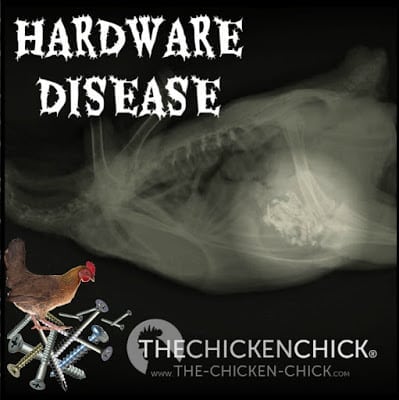

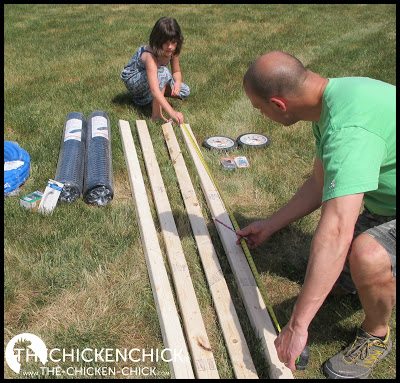
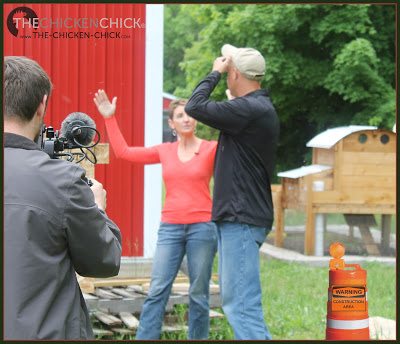
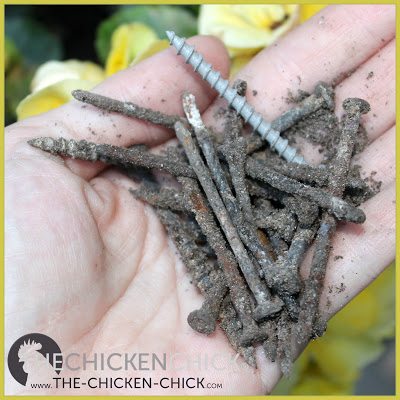
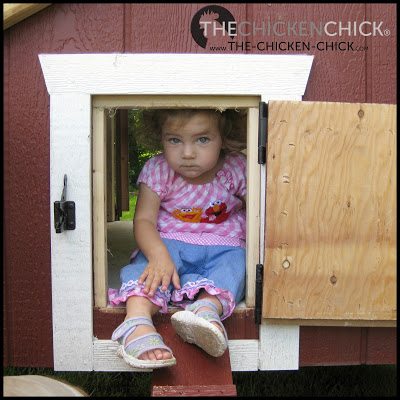
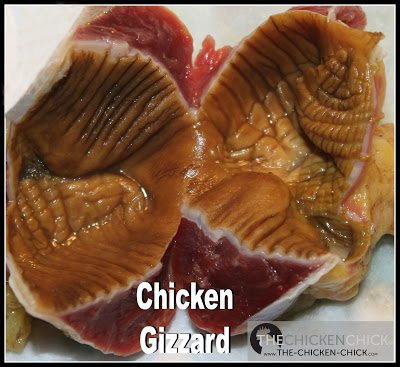
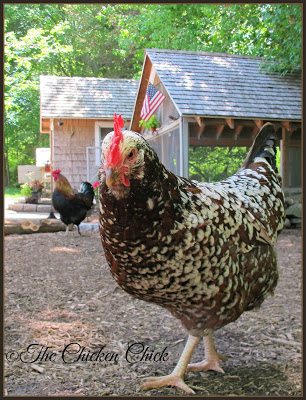















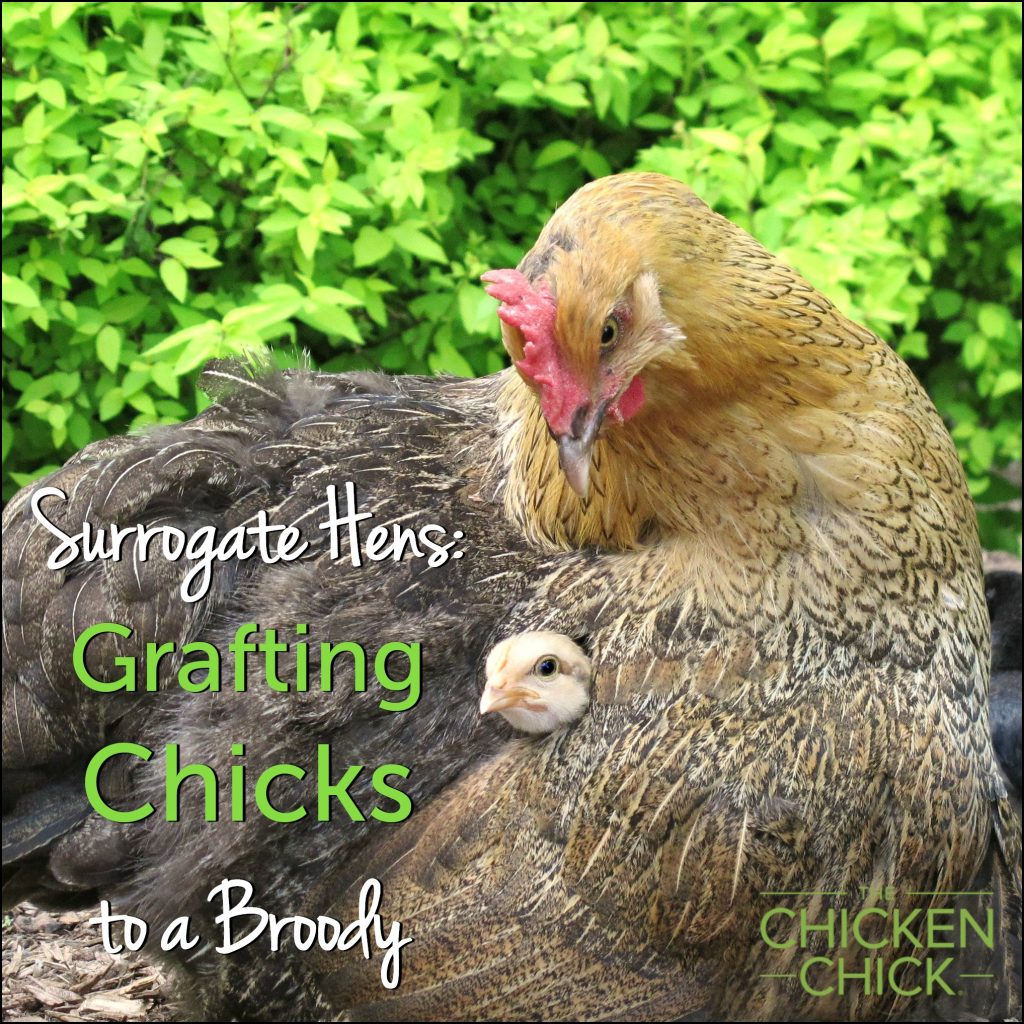
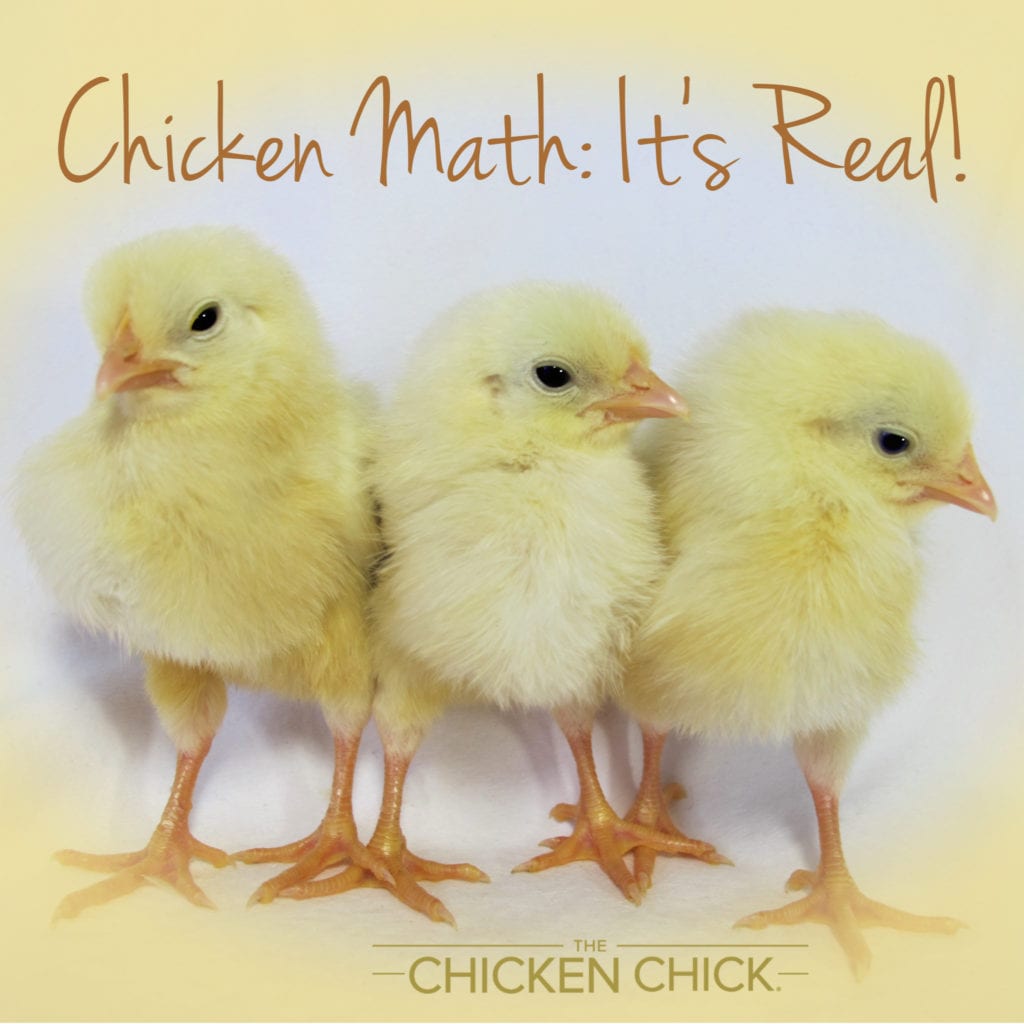









Swallowing metal pieces also leads to metal toxicity (zinc and lead poisoning). Most commonly used nails, staples, etc are coated in zinc (galvanized) which is highly toxic to all birds. For birds that chew (like parrots) it is important to use stainless steel hardware only and that includes cage making materials. Chicken wire, hardware cloth, welded wire… are all dangerous and can potentially lead to lead/zinc poisoning in any bird that licks or chews on the wire… again, not too much of an issue with chickens since they don’t climb or chew on the wire.
Thanks for the timely warning. Always keeping a look out as I am a barefoot sort of person. even with my free rangers, but didn’t know the silly girls would eat the pointy sharp things!
I have a HUGE magnet that I bought in a yard sale. Attached string to it and swing in slowly back and forth over my construction area. I have horses also and need to be extra careful. It works so well that my nephew borrowed it while building horse sheds for his horses! We need to look at our surroundings with a “chicken eye!”
As always, thank you for sharing.
Thank you for the info. Wow.